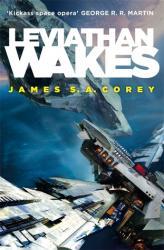
Leviathan Wakes is the first novel in the science fiction series, the Expanse. It follows the stories of Jim Holden and Detective Miller as they attempt to uncover a plot to start a war within the planets. This book is incredible. Every character feels alive and unique, and you really begin to connect with them as the plot moves forward. The plot itself is stellar, and is relentless in its suspense, intrigue, and action. I would highly, highly recommend to anyone who loves science fiction, or is just looking for an amazing book to read.
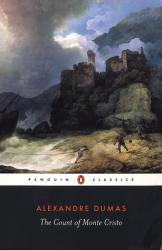
This book is amazing. The story follows the tale of Edmond Dantes and his quest for revenge against the three men responsible for his incarceration. It is a very simplistic concept, but upon reading the novel one will find a book filled with characters that live and breathe, action that is relentless, and many subplots threaded throughout the novel in intricate ways. The book, while extremely long, is entertaining all the way through. The ending is satisfying and ends the book well. I would recommend this book for anyone who is a fan on action novels, or revenge novels.
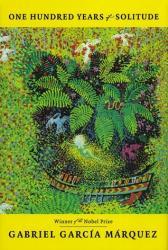
One Hundred Years of Solitude tells the tale of the rise and fall of the fictional Colombian town Macondo, and the stories of the Buendia family that inhabits the town. The novel is stellar. The characters feel alive and breathing -- they all have different motivations, desires, and weaknesses.
The reader truly begins to feel a connection with these characters as the novel progresses, and that's what makes the novel so good -- if you didn't know the town was fake, you would think it was a real place. The novel pioneered the genre of magical realism, which is a novel with a realistic view of the world that includes magical and surreal elements. The inclusion of magical realism elements in the story is what makes the book truly unique and fun to read. However, it is a very dense book, and can become very confusing very easily. If you can get past the often confusing nature of the novel, you will find a very rich and rewarding reading experience that I would recommend for anyone to read.
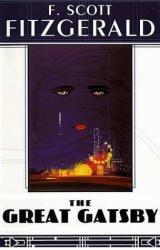
The Great Gatsby is the story that is narrated by Nick Carraway, an old neighbor of Gatsby. Taking place in 1922, Nick tells his story of when he has just moved from the Midwest to West Egg in Long Island to become successful and gain fortune as a bond salesman.
The Great Gatsby by F. Scott Fitzgerald is a exemplary book taking place during the Jazz Age. The novel was well written. It was simple, intriguing, clever and witty. Contrary to the deep story/plot line, the writing made it interesting and neither too boring nor extremely emotional. In addition to this, the overall fate upon the Gatsby, Carraway, and Daisy has a strong connection to the reader that allows them to feel the concept of tragedy.
Personally, this is one of the best books/novels. It is a great work of fiction that perfectly crafts the story and the Jazz Age of America.
Reviewer Grade: 10
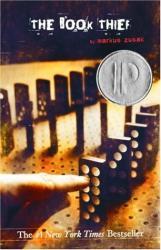
The Book Thief is a novel set over the World War II period. It tells the story of a young orphan, named Liesel. She arrives to her new home with her foster parents, Hans Hubermann and Rosa Hubermann. As she lives there, her love for books begins to grow. Taking risky steps, she steals books from many others, even rescuing one from a pile of burning books of the Nazi bonfire.
As time passes by, Liesel and her family secretly shelter a Jewish boy from the father that had once saved the life of Liesel's father, Hans.
This book was well written and enjoyable to read. It took the perspective of two significant characters, Liesel and Death, which offers a standpoint that the reader could decipher themselves. In addition, with the inclusion of dry humor and insightful observations it would demonstrate a more impactful feeling towards the reader with the overall fate of the characters and the story. This is an important detail, that adds much more feeling that is captivating and interesting.
The Book Thief was a book that could not be predictable, nor fast paced.
Rather it was slow and every turn of direction the story had felt dangerous and worthwhile. It is important for the reader to understand it slowly, however is contradictory to the fact that it is highly captivating to want to see what will happen next. The Book Thief is personally a very well written book and is one of my favorites.
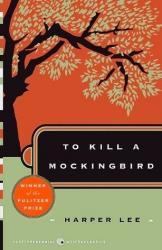
To Kill A Mockingbird is a book set in the early 1930s that describes the story of a family in the quiet town of Maycomb in Alabama. Currently suffering in the Great Depression, Scout Finch and her brother, Jem, live with Atticus, their widowed father. During the summer, Finch, Jem and their neighbor Dill explore their street to find an eerie house owned by a man named Mr. Nathan Radley. They learn that he has been living their for years with a brother, Arthur, and has never ventured outside.
The book took a simple setting and turned it into an exciting and intriguing plot line. It was unpredictable for the courses of events that took place, where it was never boring and was continuously captivating.
Personally, I enjoyed most about the creative plot line and course of events that happened in the book. It is an extremely unique book that is in an uncommon time setting, which creates a more enjoyable experience. This is one of the best books I have read.
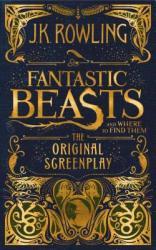
I was really excited when Fantastic Beasts came out because Harry Potter was over and I loved the make-believe world of wizards and witches. Before Fantastic Beasts was released I was curious what J.K. Rowling was going to do next, I didn’t think she was done writing books altogether. Fantastic Beasts turned out to be a great read and satisfied my imagination with magic.
Fantastic Beasts, a fictional novel by J.K. Rowling, follows a magical young man named Newt on a journey to find his beasts that escaped. Newt Scamander is a wizard unlike any other, he uses not only his powers but the powers of his magical animals. In Fantastic Beasts Newt has lost some of his creatures and needs to find them before they wreak havoc among the regular people’s lives and more importantly before the truth about wizards being real is revealed to everyone. Newt meets lots of strange people almost as fascinating as his beasts and even befriends a person named Jacob on his journey.
Something I’ve wondered for a long time is why J.K Rowling wanted her book to be designed in the format of a screen play, maybe she thought it would make the characters feel more real and personal. I think that J.K. Rowling really got everything right with Fantastic Beasts and Where to Find Them even down to the art which creates very detailed imagery and gives you a sense of what she is thinking about when she makes these strange beasts.
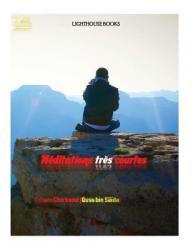
One Hundred Years of Solitude tells the tale of the rise and fall of the fictional Colombian town Macondo, and the stories of the Buendia family that inhabits the town. The novel is stellar. The characters feel alive and breathing -- they all have different motivations, desires, and weaknesses. The reader truly begins to feel a connection with these characters as the novel progresses, and that's what makes the novel so good -- if you didn't know the town was fake, you would think it was a real place. The novel pioneered the genre of magical realism, which is a novel with a realistic view of the world that includes magical and surreal elements. The inclusion of magical realism elements in the story is what makes the book truly unique and fun to read. However, it is a very dense book, and can become very confusing very easily. If you can get past the often confusing nature of the novel, you will find a very rich and rewarding reading experience that I would recommend for anyone to read.
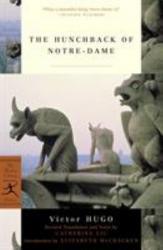
Victor Hugo is one of those classic authors who I’ve hesitated reading because his stories tend to have a lot of details that don’t necessarily add to the plot. Sure, The Hunchback of Notre Dame is no Les Misérables , but Hugo’s style made this book perhaps a little longer than it should have been. Either way, now I know a lot more about the architecture of Notre Dame Cathedral. Despite all this, the story of The Hunchback of Notre Dame is timeless in many ways, not the least of which centers around its titular character.
While modern stories are vying to be inclusive and diverse, Victor Hugo managed to write a story in the 1800s that not only included a disabled individual but racially diverse characters (at least for France) as well. The fact that both are sympathetic protagonists helps cement Quasimodo and Esmerelda in my mind. They’re both persecuted in their own ways; ostracized from a society that wants homogeneity more than diversity. Sound familiar? Perhaps this is why this book maintains a timeless quality. Even with the slight twist in the ending, the harassment endured by these individuals doesn’t dampen their kind spirits.
For those who might be more familiar with the Disney version of this story, the movie adaptation is more along the lines of a kid-friendly (i.e., sanitized) version of the basic plot. There is quite a bit more violence and “romance” involved in this story—not to mention the obvious absence of talking gargoyles—which I felt made it a little more convoluted than it had to be. Still, Hugo’s way with words was mesmerizing throughout, even if I know that they’ve been through the filter of a translator. If Les Miserables is daunting to you, perhaps try warming up with The Hunchback of Notre Dame, first. You won’t be disappointed.
A timeless classic full of diverse characters and exciting action, I give The Hunchback of Notre Dame 4.0 stars out of 5.
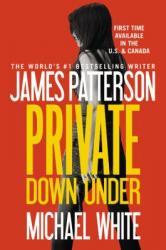
I listened to Private Down Under as an audiobook. This was the first James Patterson book I've ever read/listened to. I can't wait to delve into even more; I was instantly hooked. I finished another in less than a week. I wasn't sure what to expect, but after the main characters, a male and female who work for a private investigating firm, I anticipated somewhat of a romance. I was pleasantly surprised that was not what it was. Craig Gisto is launching "Private", an investigating firm, when almost instantly three cases land in their lap.
I was so anxious to find out how the cases unfolded that I found myself sitting in my car waiting for the end of each chapter. More than that, I dug out the CD player from the garage so I could end my evenings listening. Each case had it's own twists and turns, each with their own level of suspense. They were not able to be "solved" by the reader until the author gifted you that information. There were a few gory details, but nothing most adult readers will squirm at. The tone was pretty serious, with moments where I may have emitted an audible gasp. I truly appreciated how they had a native Australian read this book, considering the locale. The reader did a great job adjusting his accent to the characters he was speaking for. Overall, I really enjoyed this book. I am looking forward to discovering more of what Mr. Patterson has to offer.
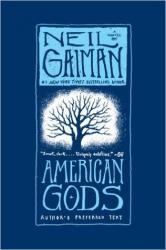
This book follows ex-convict Shadow, once he is released from prison and enters into a new job as the assistant to Mr. Wednesday (more commonly known as Odin). Shadow doesn’t believe the fact that he is surrounded by gods, until Mr. Wednesday introduces him to god and god and shows him undeniable evidence. Mr. Wednesday is using Shadow as a mean of amassing the older, more forgotten gods into an army ready to retaliate against the new gods of the modern era. Technology, for example, is depicted as a god, but a socially removed and young god. This has been one of my absolute favorite books to read because of how it explores the change in worshiping from ancient gods and folklore into technology, media, and trends. The book is so complicated because it brings together ancient gods of cultures from around the world.
Each have different origins and purposes, and the role Shadow plays as the representation of humanity only intensifies the surreal feeling of the book.
I liked how I was able to relate to Shadow, as bring subject to the controlling factors of society, whether they be demanding gods or media outlets. I appreciated how well-researched the cultures written about were, and how there isn't a page in the book that doesn’t bring about another point to think about, something like morality or control. The book is also very entertaining and a fascinating storyline, and I would highly recommend it to any reader. I would give it five out of five stars.
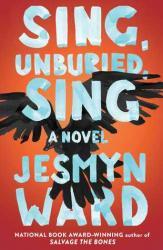
This book is a mix of old folklore and spirituality, racism, social stereotypes, and empathy. It revolves around a family who face racism from the white grandfather of black children. The main characters are the mother, the son, and the baby daughter, who relies more on her brother than her own mom. Her mother spends more time doing drugs than raising her kids, so the grandparents have generally brought them up. Their father, a white drug dealer, is in prison, and the book follows the family’s road trip to go and pick him up. The novel switches between a modern setting, and the prison but from the 1940s, when the black grandfather was in jail. The story analyzes the reasons behind a broken family, and brings to light the continued racism in the southern USA. However, the spirituality plays a role because another character who joins the road trip is the mother’s dead brother, who appears as a ghost and brings up the idea of family. I enjoyed this book very much because of its complexity. The book can be a slow read, as all the scenery and characters are continually described in precise detail, but the author leaves no point unexplained. The meanings behind the plot are subtle, and the supernatural aspect is a good point of interest to tie together the past and the present. I loved the honesty behind the author’s writing, and I enjoyed the beautiful writing style. I would highly recommend this book, and would give it four out of five stars.

The Scarlet Pimpernel is a wonderful book that incorporates the idealism of the French Revolution to create a unique setting. The historical adventure story is filled with a great blend of suspense, thrills, and romance. The developments included in the story are well-executed and the characters are all full of life. The overarching plot is also intriguing and will captivate the reader until the end of the book. Overall, I would recommend this book to anyone, especially those who like a bit a history.
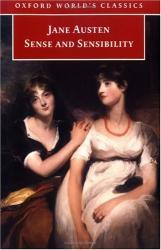
In the classic Jane Austen novel "Sense & Sensibility", three sisters -- Elinor, Marianne, and Margaret -- face a new life after their father dies and they are forced to move to a new home. The sisters' relationships are tested as they balance emotional turmoil, suitors, and new beginnings. I loved this book -- partly because Austen's writing style is straightforward and far easier to read than most classics -- and because of how much time Austen took to masterfully develop her characters. The relationship between Elinor (who is sensible and logical) and her sister Marianne (who is emotional and has a love for drama) is deep and complicated. As the story progresses, we see different sides of the sisters as they struggle to grow in their new environment. I absolutely loved this story. Honestly, there isn't a single negative thing I can say about it. I would highly recommend it to someone who doesn't like classic novels, because I think "Sense & Sensibility" could definitely change their minds.
Grade: 12
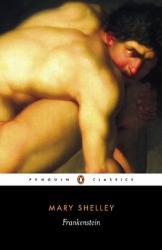
In Mary Shelley's classic novel "Frankenstein", a young ambitious scientist decides to play God and, in the process, creates a monster. As the monster struggles with self-identity and the meaning of his life, he enacts revenge on his creator by destroying everything he loves. Any time you dive into a classic novel, it can be difficult to keep your expectations from getting too high. This novel met pretty much all of mine -- the rich character development of both Frankenstein and the monster, the excellent use of suspense and foreboding to create tension, and the well-paced action. There were definitely some slow parts, but that's mostly because the writing style has changed so much between then and now. However, the multiple perspectives helped keep things moving when they began to slow down. I really enjoyed this novel but I had one fairly big complaint: the ending felt rushed. I felt that we were building up to a much more action-packed ending, but things fizzle out very quickly and the novel ends on a strangely unsatisfying note. I think that there could've been more time spent creating a strong conclusion to a really strong story. Besides that, this classic is excellent and definitely worth a read.
Grade: 12
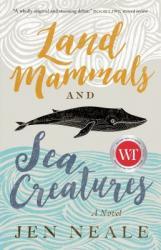
I believe there are many factors that will determine whether or not a reader enjoys this book. It is a first novel by this author and the reader's age may impact their willingness to immerse themselves in an environment, however fictional, that is, from the outset, purposefully created to be offensive to one's sensory organs. This is, and continues to be, crucial to both the plot of the book and an underlying message.
The characters are realistic and set in what is generally considered to be a gorgeous part of Canada's Pacific Coast, British Columbia. But the events of the book usually overwhelm one's ability to bask in that beauty for long. While the sadness of the characters' lives and the ugliness of their relationships with their environment are not without purpose, it is a tough read.
Including motherlessness, PTSD, isolation, human destruction of the environment and suicide in one book rarely makes for light reading. But it would be helpful to the reader to envelope those topics in a book that provides some wisdom or hope for progress on more than one front.
The author seems to be presenting some positive rationales for suicide, but these characters are all so far gone by the time the story begins that it is just another false glimmer to think that the outcome is anything more than part of the death all around them.
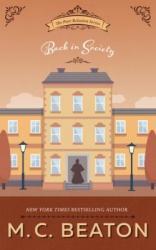
Mildly entertaining, The "Poor Relations" Series isn't nearly as suspenseful, nor well-written as Marion Chesney's popular "Hamish MacBeth" Series, nor as interesting and comical as the feisty Agatha Raisin of the "The Agatha Raisin Series". With the exception of a few of the characters, such as the loathsome, ill-mannered Sir Philip and the interesting Lady Fortescue and Harriet, the former cook and now the Duchess of Rowcester, the heroine of this book, Lady Jane is a Lilly-livered character who although young, cannot stand up for herself in any situation. She is so unlike the sharp-tongued, independent, although vulnerable Agatha Raisin that her character is seems like a "doormat". Unlike the first book of this series "The Poor Relations", which heralded the strength of character, independence and backbone of each character, the plot of this book seems contrived and somewhat unbelievable, perhaps because no young woman in this day and age would be as weak as it's "heroine" Lady Jane. This book was written in '94, under the pseudonym of Marion Chesney, perhaps when M.C. Beaton's was developing her writing style. However, in this day of strong, independent women, the Cinderella story of being rescued by Prince Charming this hackneyed story seems boring and mundane.
The excellent writing of M.C. Beaton seems to be absent in this novel, and the "damsel's in distress" theme of "Back in Society" is dated and uninteresting!
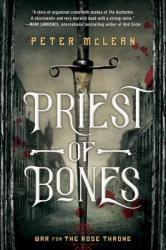
It took me a good long time to read this book. I started reading it and I
would stop, then I’d try to start it again. Then I decided to just buckle
down and read the book. I have to say it was a pretty darn good book.
I wasn’t expecting it to be the first in a series, but as I started coming
closer and closer to the end, I realized that it may well be part of a series
– and I was right, it is. The book takes you on a journey of what happens
in a medieval style world when someone comes home from war and realizes that
a new war is brewing and it’s starting in his own city. The book is rather
slow to start and at times doesn’t make sense, but anything that doesn’t
make sense at the time will be clarified later in the book.
This particular novel is written memoir style – the narrator refers to his
having written things which is an interesting concept. Usually you don’t
see novels written as memoirs with the narrator stating that he or she had
written something earlier. I fully expect that if this series were to become
movies, that you’d find an old, wizened man at the end closing a notebook
in which he’d written the entire sordid tale.
The book was well written and I have to admit, although it isn’t normally
my type of book, I was into it. The characters were developed as much as they
needed to be and the ones that aren’t, well, there’s a reason for it.
Some of them don’t need it, some of them don’t need it right now. Read
the book and you’ll see.
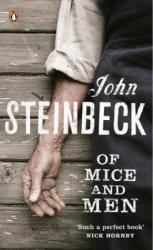
Of Mice and Men is a true classic. It is a gripping tale of friendship and tragedy that takes place during the Great Depression. Lennie and George are very well-developed characters and their story of fulfilling their American Dream is one that you won't want to put down. Of Mice and Men is a surprisingly short read, but its story is enormous. While the book does include some controversial topics, it is still a very good read that I would recommend to anyone.
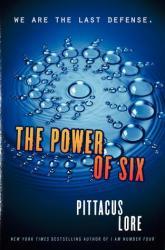
The sequel to I am Number Four is just as thrilling and action packed as the first. John, Sam, and Six set out as fugitives and work to find the others as we meet Seven. Seven is also known as Marina and lives in a convent/orphanage in Spain while she convinces her Cepan to rejoin the fight and develops her legacies. Complete with numerous battles, close escapes, incredible powers, and fun characters, The Power of Six is an excellent read for any middle or high schoolers.


